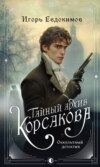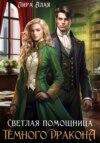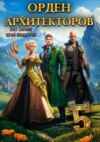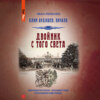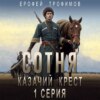Читать книгу: «Sweet Mace: A Sussex Legend of the Iron Times», страница 14
How Sweet Mace asked for a Cup of Water
“Quick, Polly, my hat and cloak!” cried Mistress Anne, running up to her room, where her little handmaiden was seated at work. “Then there is some truth in the old woman’s philtres after all?”
“Yes, mistress, if you mean Mother Goodhugh’s,” cried the girl, who had caught the last words.
“Why? How? What do you know?” cried Mistress Anne.
“Why, mistress, everybody in love goes to her to get her help.”
“And who told thee I was in love, thou saucy slut?” cried Anne angrily.
“My handsome mistress’s beautiful cheeks, that turned red when she knew Sir Mark Leslie was coming, and her red, ripe lips, that spake his name. La, mistress, don’t be angry with little me, for wishing to see thee with a handsome, gallant husband. But I shouldn’t like though for him to be so fond of Sweet Mace down at the forge.”
“And who dare say he is?” cried Mistress Anne, angrily.
“They say he be, mistress, and that he pooked Captain Culverin about her, and the captain was nearly drowned as well.”
“Who told thee all this?” cried Anne.
“Janet, who lives there, helped the news to me,” replied the girl; “but Sir Mark would never bemean himself to marry such a creature as that Mistress Mace.”
“Hold thy prating tongue,” cried Mistress Anne; “and if I find thee talking about my affairs, girl, or what thou seest, Sir Thomas shall know.”
Hastily tying on hat and cloak, she started for Mother Goodhugh’s, Polly, her apple-faced little maid, making a grimace as she left the room.
“I shall talk as much as I like,” said the girl, giving her head a toss; “mighty madam, as you be. Tell Sir Thomas, and I’ll tell what I see going on from this window, down in the nut-stubbs. Ha, ha, ha! how my lady did stare.”
Mistress Anne lost no time in making her way across the fields and through the woods, to Mother Goodhugh’s; finding the old woman seated at her door, watching her bees as they flew in and out from the straw-hives in her garden-patch.
“Ah, my dearie,” she exclaimed; “you be come again?”
“Yes, mother,” cried Anne, trying, now to keep calm and cool. “What is this I hear about Captain Carr?”
“Captain Carr be not for thee,” cried the old woman, firing up; “he be a murderer – he has slain my best old friend, and if Sir Thomas, thy father, does not have him hung, he be no true man.”
“Softly,” said Mistress Anne; “softly, mother.”
“Nay, I will go softly no more. But of thine own affairs, dearie, Captain Gil Carr is cursed, with all he does. My words have brought him evil already, and thee good. Sir Mark, the handsome stranger, is to wed my handsome mistress. I sent him thee to-day.”
“You sent him?”
“Ah, child, mock away. I sent him on his way to London. Tell me, if thou darest, that he did not say sweet things to thee? Ay, thy face tells it. Child, he be thine.”
“Nay, mother,” cried Anne, who was thrown off her guard by the old woman’s apparent knowledge; “he is coming back soon, and he will go to the foundry-house, and – and – ”
“Mace Cobbe? Nay, child, nay; the game be thine own now. He and Mace have nothing between them. He be thine if thou wilt have him.”
“How can you tell me that, mother?”
“What!” cried the old woman, “have not I worked upon him night and day, till he and that girl are at odds? I say, child; the game be thine own.”
“Mother,” whispered Anne, after a glance at the door, “I hardly believe in thy spells; but look, here is a golden piece for you. Ten more shall be yours if you can make Mace Cobbe unpleasing in Sir Mark’s eyes when he comes back. He is not half gained yet, but with your help he can be won.”
“Make her unpleasing – her face?” said Mother Goodhugh, with a peculiar look. “Hush! I want to know nothing – I will not know anything, Mother Goodhugh. Only I say make her so that he shall care for her no more.”
“But how, child, how?” said the old woman, with a malicious grin.
“Do you want me to teach you your trade?” cried Anne, sharply. “There, give me back my gold piece, and I’ll go to one who can do my bidding.”
“Nay,” cried the old woman, sharply; “I’ll do it; but if I get into trouble thou must stand by me with Sir Thomas.”
“What if they want to burn thee for a witch!” said Mistress Anne.
“Hush!” cried the old woman, “hush!” and she glanced hastily round, to see that they were not overheard. “Don’t speak like that; the people might hear thee. Hist! some one is coming.”
Mistress Anne started up in alarm, as approaching footsteps were heard; and, obeying the old woman’s pointing finger, she hid behind the blue-checked curtain, which shut off her bed, just as there was a tap on the door, and the innocent object of their machinations entered, basket in hand.
“Why, it be thou, child,” cried the old woman, in an ill-used tone.
“Yes, mother; I’ve brought a few little things for thee.”
“Nay, I want them not, nor none of thy trade,” cried the old woman; “I want them not;” but her glistening eyes told another tale. “There, set them down there,” she continued, pointing to a side-table.
“Suppose you open the basket and take them out yourself, mother,” said Mace, smiling with an ingenuous look that might have disarmed the crone’s resentment; but it seemed to have a reverse action, as she rose muttering and scowling, half-snatched the basket, and carried it beyond the curtain, to empty it of its contents.
As she did so, the old woman’s eyes encountered those of Mistress Anne, and a peculiar meaning look passed from one to the other, as Mace said aloud —
“I am thirsty with my walk, mother; can you give me a cup of water?”
“Yes, child, yes,” cried the old woman, hastily; and one of her hands stole towards a shelf over Mistress Anne’s head, as she made believe to go on emptying the basket by making its lid creak loudly.
Mistress Anne’s eyes followed the old woman’s hand, and she saw the skinny fingers close upon a phial, which she hastily hid in her breast, and then once more the eyes of the pair behind the curtain met in a meaning way, and the face of the hiding girl grew ghastly pale.
“Wait a moment, child,” grumbled Mother Goodhugh, “and I’ll get thee a cup of water from the spring. There be thy basket, but bring no more such things to me; I hate them.”
“We’ll see, mother,” said Mace, smiling, as taking a cup from a shelf the old woman hurried out of the cottage to where, out in the road by the side of the lane, a dipping-place for the clear, cool iron-impregnated water had been made.
Stooping down, after glancing right and left, she dipped the cup full of the clear water; and then, removing the cork from the little phial, she poured half its contents beneath the hand that covered the cup, recorked and hid the bottle, and then with an ugly smile about her lips returned to her visitor.
“Here, child,” she said; “it be cool, and sweet, and pure. There be no curse in that;” and as she spoke she glanced involuntarily at the curtain, behind which Anne Beckley was listening, and, though no breeze penetrated the cottage, the hangings visibly shook as Mace took the cup.
Poison, a decoction of some imaginary power, or merely the juice of a plant full of tannin, the effect was the same. Mother Goodhugh was too deeply intent on watching her last visitor and the curtain to pay any heed to the contents of the cup. She had dipped it full of the iron-impregnated water, and seen that it was clear as crystal before holding it in her left hand, with the fingers extended round the rim and her palm acting as a cover. The pouring in of the liquid of the phial, too, had been done in a hasty way, without more than a glance at what she was doing.
To her surprise, then, as she handed the cup to her visitor, Mace passed it back.
“I asked you for a cup of cold water, mother,” she said quietly, “and you gave me this!”
Mother Goodhugh looked down at the cup to see that the limpid crystal water she had dipped had turned of a livid black; and, startled and convicted by the change, she gazed at it, then at the girl, and then back at the cup.
“What did you put in it, mother?” said Mace, quietly.
“I – I – put anything in?” said the old woman, humbly; “what should I put in?”
“Some one or another of your silly mixtures,” said Mace, sternly. “Why do you attempt to try them upon me?”
“Silly mixtures!” Such a term applied to her philtres in the presence of one whom she wished for her own reasons to impress fully with her potency! A moment before the old woman was shivering and cowed; now her visitor’s words roused up the spirit of opposition within her, and, with her eyes flaming defiance, she called upon her powers of well-matured dissimulation as she half shrieked: —
“I put in mixtures! Go to, white witch that thou art. Did I not see thee cast an evil eye on the drinking water, and turn it black? Look here,” she cried, seizing the cup, throwing out its contents, running to the spring, and returning with it full of clear fluid, “the water be bright and sweet. Nay, nay; thou shalt not touch it,” she cried, as Mace stretched out her hand to take the cup – “I will have no more of thy juggling tricks here. Out upon thee, witch – witch, who triest to win decent maidens’ lovers to thy side. When the time comes that justice overtakes thee for thy wicked enchantments, my voice shall be raised to tell of all I know. Go! – Away with thee! – Witch, witch!”
She stood waving her hands and stick at her who had brought her help, and a malignant look of spite and suppressed glee overspread her face, as she laughingly hugged herself upon the clever way in which she had turned the tables upon her accuser. The girl’s lips parted to speak; but finding her adversary become more voluble and ready, Mace shrank away, staggered by the words of the old woman, who followed her to the door, and stood menacing her and shrieking threats as she hurried away with the words “witch, witch,” ringing in her ears.
There was no lack of common-sense in the founder’s daughter, but for the moment she was startled by Mother Goodhugh’s words. No more superstitious than the educated people of her days, a faint belief in the sin of witchcraft lingered in her mind; and she knew by rumour of the terrible fate that had been reserved for women accused of such dealings. For, from time to time, account of fiery executions had reached the remote hamlet, and she shuddered as these memories came back.
To be accused of witchcraft by some malignant enemy meant placing the accused in a position wherein nothing she said would be believed; and, as she hurried homewards, Mace’s face was pale with anxiety and dread.
This soon passed off, though, and she laughed at her childish terrors.
“Poor old thing, she is half mad,” thought Mace; and even then she began to think about the cup; coming rapidly to the right conclusion that Mother Goodhugh had placed some one or another of her decoctions in the water.
“I’ll go there no more,” she said; “the old woman is dangerous, and to try to ward off her wishes by kindly acts seems to make things worse.”
She was, in spite of the encounter, light-hearted and glad; for though the accusation against Gil troubled her, still she knew that he was innocent, and had hoped by propitiating Mother Goodhugh to get her in time to withdraw her words. That adventure had failed; but there was a change at home that made her heart leap. Sir Mark had gone, and an incubus seemed to have been removed from her heart as she felt that the old happy days would come again; and, laughing off the scene with Mother Goodhugh, she hastened on through the pleasant, sunlit glade, where the birds hardly fled at her approach.
“There will be no spells here,” she said, laughingly, as she turned aside; and, parting the bushes, climbed down amongst the ferny stones to where the water dropped into a natural basin, from which, with a cup improvised with a broad burdock leaf, she sipped the pure sparkling fluid and quenched her thirst, seating herself afterwards to rest upon one of the mossy stones, and gazing dreamily down the ravine, through which the water flowed beneath a canopy of luxuriant ferns. As she gazed, a kingfisher, till then motionless upon a twig, suddenly darted down into a pool, rose with something silvery in its beak, and fled along the narrow valley like a streak of azure drawn across the verdure by a spirit-hand, while soon after the white coverts of a blue bar-winged jay were seen as the shy bird peered at her with corvine curiosity and then uttered an excited “Tchah – tchah!” and fled.
Mace thought not of kingfisher, jay, or the velvet-coated blackbird that came and perched so near to watch her intently, for she was considering whether Sir Mark would come back, and, if so, whether he would renew his suit. She was troubled, too, about her father, and his want of faith in Gil. It had seemed as if in his heart he did not dislike the attentions paid to her by Sir Mark; and at last, with a sigh, she rose and continued her little journey.
“Time smooths away a good many difficulties,” she said, half-laughing; “and, if it does not, I must fain follow the example of the Virgin Queen.”
To her surprise, before she was out of the wood she met her father, who rarely left the precincts of his own grounds, unless it was to visit ironstone pit, quarry, or the colliers busy charcoal-burning. He seemed to be examining her curiously as she came up to him, and laid her hand upon his arm.
“Where have you been, Tit?” he asked.
“To take Mother Goodhugh a chicken and a few little niceties, poor soul!”
“For cursing thy father so bitterly?”
“Nay, father; to try and make the poor half-crazed soul more sensible.”
“And to pay her for muttering nonsense to please a silly girl. Tit, I thought better of thee,” he said.
Mace looked at him half-wounded, half-amused.
“When did you know me guilty of such follies, father?” she asked.
“Never till now, when thy head was filled with love-nonsense by that scoundrel, Gil.”
“Father, you hurt me when you speak thus of Gil,” she cried sadly; “and when you doubt my truth.”
“Thou hast been to Mother Goodhugh, like some silly wench, to ask her for love-charms; worse still, thou hast, the moment Sir Mark has gone, run off to keep tryst with a man I forbid thee to see.”
The pained look grew deeper in Mace’s eyes as she laid both her hands upon the broad chest of the founder, and gazed full in his eyes.
“Father, dear,” she said, simply, “why should I go to bid a foolish old woman mutter silly spells, when I know that Gil loves me with all his heart.”
“Out upon his love. As he loves Anno Beckley, and every woman he meets. Shame on thee, girl – for shame!”
She smiled sadly as she still gazed up in his face.
“You don’t mean this, father, dear,” she said. “You don’t think I should be so silly as to go to Mother Goodhugh for what you say?”
“I do,” he cried, harshly.
“And you don’t in your heart think that I have been to see Gil.”
“I tell thee, I do,” he cried.
“And what is more, you don’t think your little girl would play you false.”
“What?” he cried, “has not Gil been at thy window?”
“Yes, father,” she said; “as he has scores of times when we were boy and girl together; but I have bidden him come no more. I never thought harm of it – only that it was pleasant folly,” she added, dreamily.
“Out upon such folly!” he cried.
“Gil will not come again, and I shall try to see him no more, dear, till you bid us meet; and you do not believe that I should ever deceive you.”
“You turn me round your finger, child,” he cried, catching her to his breast, and kissing her passionately. “No, no, no; I don’t believe you went to that old woman for such trash, nor to meet Gil Carr. I know you couldn’t deceive me, my darling; and if I am harsh to thee it is for thy good. Ah! Tit, Tit, what a little witch thou art!”
“Don’t, father!” she cried, starting from him with a cry of pain.
“What is it, my bird? What have I done?”
“You called me a witch,” she said, with a slight shudder, but trying to laugh it off.
“Well! an’ if I did?” he said, laughing.
“It was foolish to mind,” she said; “but Mother Goodhugh just now was angry with me, and called me witch, and uttered threats.”
“Against thee?” cried the founder, angrily. “I say, then, let her curses return upon her own head, witch that she is herself. She shall go from Roehurst before this time to-morrow.”
“Nay, nay, father,” cried Mace, hastily; “don’t visit her mad ravings upon her. Let her rest. Poor thing! she’s crazed with grief. Let her be – for my sake, let her be.”
“What, and let her some day bring evil upon us by her witcheries?”
“What, and is my stout, brave father going to have faith in what yon silly woman says!” cried Mace, laughing. “Come, father, promise me you will not have her touched.”
“I’ll promise thee anything, child,” he said, smoothing her soft hair, and bending down to kiss her cheek.
“Anything, father?” she cried.
“Not quite, Mace,” he said with a sigh; “but anything that is for thy good;” and they walked on through the wood together, the old man smiling and loitering as his companion kept stooping to pick some bright flower, for it put him in mind of her childhood, when sweet Mace and the wild flowers seemed each to belong to each. Now it was the bright yellow meadow vetchling, now the brilliant orange-tinted lotus, and then long sprays of the purple-blossomed tufted vetch.
Further on they came to a sunny opening where the trees had been felled, and here was quite a forest garden, where Mace paused, with the care that had shaded her face for days gone to leave it bright and childlike once more; while the founder smiled as he stood and watched her run from patch to patch, picking hastily and talking the while.
“I won’t be long, dear. Oh, how beautiful the heath is; what lovely sprays!”
Then she ran to where the orange ragwort threw up its tufts of sun-like florets, picked golden-rod and Saint John’s wort; ran a few steps to where the wood betony raised a clump of purple-waving heads. These, with delicate grasses, pink robins, lavender scabious, and soft-foliaged golden-disked flea-bane, and hawkweed, made up a goodly nosegay. But still, there was more and more to add, for as she walked on it was by a clump of golden genista, each plant a bouquet in itself; bright pink starred centaury; and then farther along by a hollow, where the water lay in a dark pool, the quaint stars of the branch bur-reed, with abundance of forget-me-not, seemed to ask the picking.
“Oh, father!” she cried merrily, as she stopped at last, with a bunch of flowers as large as her fingers could grasp, “what a shame that I should keep thee thus!”
“Nay, nay, my child,” he said, smiling, as he stroked one of her soft flushed cheeks; “it seems to do me good to see thee young again. It is like a rest on life’s journey, and a pleasant halt where one can forget one’s hurry and toil. Mace, my pet,” he said, seating himself among the heath upon a sandy bank, “I think I could give up everything, except my garden and my pipe and ale, if you and I could go on together always like this.”
“Then let us go on like this, father,” she cried, seating herself at his feet and resting her head against his knee. “Why should we let trouble come between?”
“Because we can’t help it, girl,” he replied, laughing. “He’s let in by that little mischief imp who comes unasked and holds open the door for t’other, and then the sorrows come. You know the boy I mean, Tit; his name is Love, and I s’pose it has always been the same.”
There came a curiously pained look in Mace’s eyes as she turned them quickly up to her father, then the woodland nosegay she had picked fell at her feet, and her head drooped down upon his knee.
How the Big Howitzer was Fired
Time glided on, and Gil’s ship was fast getting ready for sea. It was to be a good trip this season; and, as she approached completion, her freight was gradually accumulated, for, as in a quiet matter-of-fact way, the captain let the relations between him and Mace stand in abeyance, the founder made some slight advances, and business arrangements were resumed.
It would have been a serious matter for both if they had stood out, for Gil formed almost the only channel through which Jeremiah Cobbe’s productions were sold, and upon him depended the supply of two of the principal ingredients with which one of the founder’s branches of industry was carried on.
So gunpowder was made and ground. Gil – though never asked to the house, nor making any attempt to see Mace, and at their casual encounters meeting her quite as a friend – spent much of his time at the founder’s works, superintending a casting, watching the purification of some batch of nitre that he had brought home, and, above all, helping at the trial of a newly-finished howitzer or culverin.
The founder was pleased, for he told himself that the young people were growing sensible, and he became more friendly to Gil, who at last, after sundry night journeys had been noted by the people about, found himself ready for another voyage.
“When do you sail, then?” said the founder to him one morning.
“I have thought of going to-morrow,” was the reply; “but the tide hardly suits.”
“Then put it off till the next day, my lad, and we’ll have out the new piece to-morrow, and try her across the Pool.”
“With all my heart,” said Gil, and the next morning he was busy and light-hearted at the foundry, with old Wat Kilby and half-a-dozen more, helping and superintending the mounting and dragging out of the great newly-finished piece of artillery, on which the founder for some time had been engaged.
“She’ll startle some of them,” he said, as he patted the great piece on the breech, just as Mace came up slowly, and saluted Gil. “You shall have the first shot with her, Tit,” he said, as the idea occurred to him.
“Will it be safe to let her?” said Gil, rather anxiously, as he saw Mace shudder and shrink back.
“Safe? Just as if one of my pieces could burst!” cried the founder, disdainfully.
“The girt barrel be ready, Mas’ Cobbe,” said Tom Croftly, as he came up to announce that he had set up a great tub on a platform of planks on the other side of the Pool.
“We’ll soon batter that down,” cried the founder, as with a loud cheer the huge piece of artillery was dragged up to the end of the lake, facing the founder’s house, the whole of the men turning out to see the first discharge.
“You’ll help me to load and train her?” said the founder, who was as excited over the trial as a boy.
“Ay, I’ll help,” cried Gil, rolling up the sleeves of his doublet, and taking the lead at charging the monster; Mace smiling as she looked on, and saw the strength he brought to bear, ramming the powder, lifting the great shot as if it were a child’s ball, and then driving it home.
“Don’t aim at the target till we get the charged shell,” said the founder. “This is only a christening shot.”
“Then we’ll call the piece ‘Mace the First,’” said Gil, laughing.
“That’s her name, then,” said the founder; “and she shall be the first of many Maces. Why are you aiming so low?”
“I want to show you a shot of mine that I should use against a Spaniard if I wished to sink her,” said Gil, smiling, as by means of wedges he depressed the muzzle of the piece.
“But stop, man, the ball will go to the bottom of the Pool, and I want you to hit yon ragged oak.”
“So I shall,” cried Gil, taking aim. “Give me leave, and you shall see.”
“There,” he said, when he had adjusted the piece to his satisfaction, “that will about do. Now, Wat, ready with that linstock. What are you looking at, man?”
Wat Kilby, whose eyes had been fixed on Janet staring out of the window, uttered a low growl, and lit the linstock.
“Now, Master Cobbe,” cried Gil, “do you feel satisfied that the piece is safe?”
“My life upon it,” cried the founder.
“Nay,” said Gil, gently; “it is thy child’s life.”
The founder frowned, and was about to speak hastily, but he refrained.
“Thou art right, friend Gil,” he said; “but have no fear, the piece is made of my toughest stuff. Come, my child, be ready with the linstock.”
Gil’s countenance betrayed his uneasiness; and, to give him confidence, Mace let her eyes meet his, with a calm, loving look, as she mastered her dread and horror, took the burning linstock, and stood ready near the breech.
There was a general rush to right and left as the lighted linstock was brought forward; only the founder, Gil, and Wat Kilby, who handed the light, remaining, the latter coolly squatting down near the mouth of the piece to watch the course of the shot.
The founder smiled grimly as he said to his child:
“A little more to the right, my lass. I warrant she don’t burst; but she’ll kick like a Castilian mule. Now, captain, if you like to stand aside, there’s no need for you to run a risk.”
Gil smiled and nodded his head as he took a final glance along the piece to satisfy himself as to the direction in which it was laid.
“There,” he said. “I am quite ready; raise your arm a little, Mace, and let the burning linstock fall softly on the touch-hole. Now, Master Cobbe, give the word, please; when you will.”
“As I cry three,” cried the founder – “Ready – One, two, three.”
Gil stood by the side of the piece, opposite to Mace, watching her face as she stood firm and unflinching; and as she lowered the linstock he inwardly cried, “Brave girl! she would face a peril that would kill any of less sterling mould.”
For, at the word “three,” she let the linstock-end, with its burning slow match, touch lightly, exactly on the point where the priming lay. Then there was a flash, a ball of white smoke, vomited from the howitzer’s mouth, a deafening roar, and the great iron ball struck the water fifty yards away, rose, dipped again, and went on skipping along the surface of the water till it crossed the lake, and split the decaying oak to fragments, where it stood blasted on the further shore.
A loud hurrah from the lookers-on told of their satisfaction; and the founder turned in admiration to the captain.
“A wonderful shot,” he said; “but how learned you that trick, friend Gil? I thought we should never see the ball again.”
“From throwing stones,” said Gil, smiling. “If a stone should bound along the surface, why not a shot? That is the deadliest shot to my mind, Master Cobbe, that one could send at an enemy’s ship, and it was bravely fired.”
“Of course,” said the founder, proudly. “If my child knew that I had made the powder, and my hands had designed and fashioned the piece, she felt she would have naught to fear. And now for a shell.”
“Yes,” said Gil, thoughtfully; “now for a shell. You think your piece will fire one straight, Master Cobbe, as well as a mortar throws one in a half-circle through the air?”
“I do,” said the founder. “I lay my life on it.”
“Then,” said Gil, “I’d like to try my plan at the same time.”
“What may that be, my lad?”
“Well, sir, it is this,” said Gil. “You load your piece, then you prepare your well-charged shell, with a piece of slow match in its eye.”
“Yes.”
“And according to whether that is long or short, so is the time before it bursts the shell.”
“Exactly, my lad.”
“And you light the fuse or match before you place it in the howitzer.”
“How else could you do it, my lad?”
“That we will try,” said Gil. “I propose that you load the piece as you would a common gun, and then put in the shell with its fuse unlit.”
“Why, that’s no better than a shot,” cried Wat Kilby.
“Nay, old lad, the powder would fire the match when the piece went off, and thus all the awkward preparation would be saved.”
“My faith, Gil,” said the founder, smiling, “it’s a grand idea, and you shall try it; for if it succeeds there ought to be a big reward for the man who invents such a plan.”
“Let’s try, then,” said Gil, quietly; and, with Wat Kilby’s help, the piece was recharged, a shell filled with powder, and, with its fuse towards the charge, rammed home. Then the great piece was laid so that it commanded the broad tub set up as a mark.
“I reckon,” said Gil, “that this shell should burst just about when it strikes that mark, which should be shattered to pieces; and, if an enemy’s ship, or a fortress, terribly crippled by the effect.”
“Good, my lad, it should,” said the founder, smiling.
Without another word, Gil carefully adjusted the piece; the linstock was again handed to Mace, and, hiding a shudder, for her father’s sake she once more fired the great gun, and after a few moments, as the roar rolled like thunder over the Pool, the founder exclaimed —
“A failure, Gil, a – ”
Crash!
From a mile away came the roar of the bursting shell, like an echo of the first shot.
“A success, sir, a success; but we wanted a quarter the fuse,” said Gil, smiling.
“It’s glorious – it’s grand!” cried the founder, excitedly. “Gil, your hand – nay, we don’t shake hands now. Captain Carr, you could make a name as the greatest gunner in our land. Mace, my child, bravely fired. Why, that shell must have struck the high rocks, where the new ironstone lies.”
“Ay, it has,” said Wat Kilby, who stood shading his eyes with his hand, as he gazed at the high precipitous rocks away behind the gabled house.
“Quick, there, another shot!” cried the founder. “Mace, my child, art ready for another?”
“Nay, father,” she said quietly, and with a pained look in her eyes; “you should try this time.”
“Ay, lass, and I will,” he cried, as he watched the sponging-out and reloading of the piece; while Mace, who little recked in that shot of what she had done for her future, stood now a spectator, instead of an actor in the scene.
The piece was soon ready, and this time the shell was prepared by Gil himself, with a shorter fuse.
“Lay her so that the shell may burst over the great charcoal-heap by the corner of the wood,” said the founder; and, after exercising a great deal of care, Gil laid the piece quite to his satisfaction.
“Now try,” he said. “Ready!”
“Ready,” cried the founder.
“Fire.”
The linstock was again applied; there was the same tremendous roar; the great piece leaped back several feet, and a few seconds later, crash! came the bursting of the shell once more, so near to the charcoal hill that the air was filled with the fragments that were scattered far.




